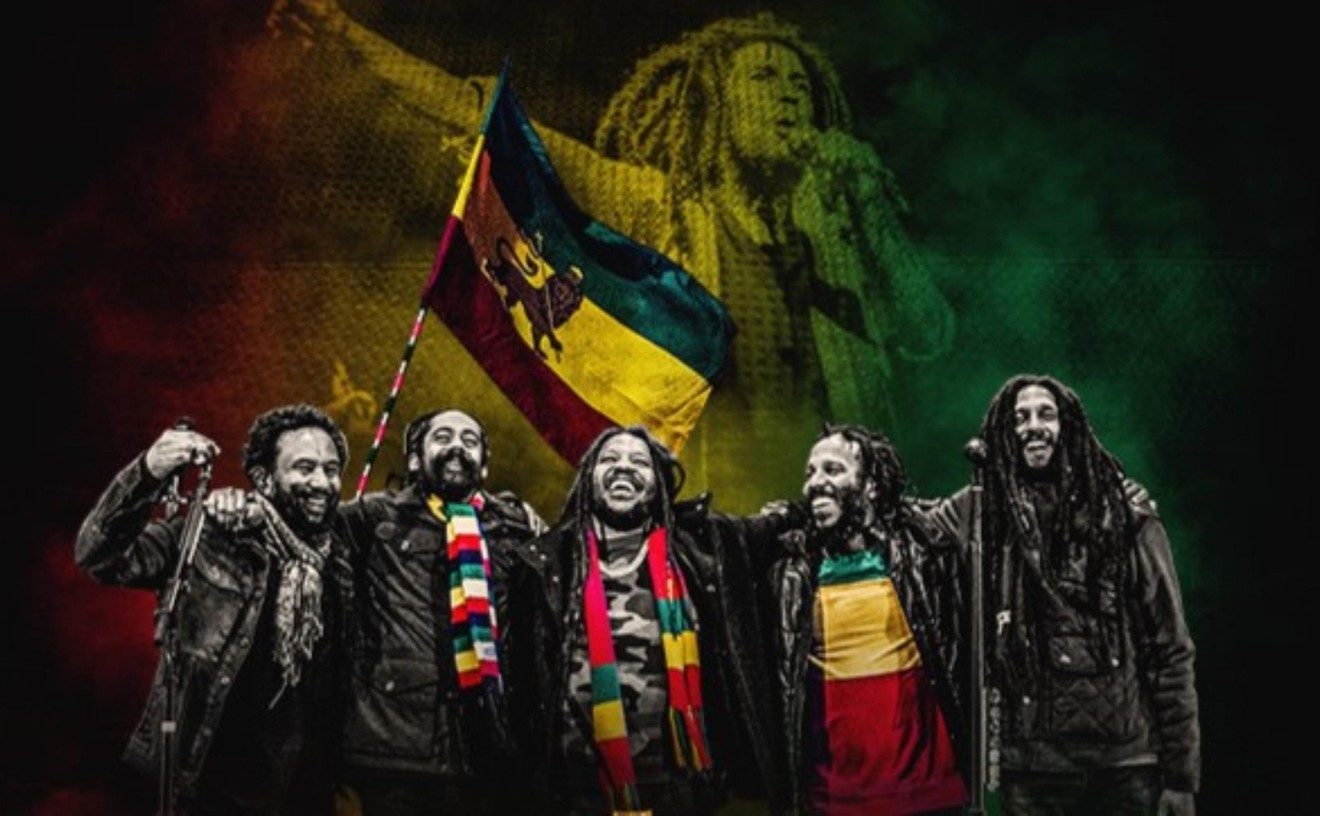Last night, I came to the conclusion that Deafheaven is black metal's Vampire Weekend.
I've never thought up an uglier string of words to describe what is fundamentally a thing of beauty. To see Deafheaven is to not see a black metal band but to see black metal being curated by hardcore and indie types in the same way that Vampire Weekend is a bunch of indie dudes curating afro-pop.
This is not a cry of "posers!" by any means. People who look like regulars at Bay Area coffee shops have just as much of right to play music with blast beats and trebly, reverby riffs as any Scandinavian person wearing corpse paint. In fact, it's good that they try to have a go at it. Deafheaven establishes black metal's validity as a genre to a broad audience of people who wouldn't normally find themselves going out to see Mayhem when they roll into town.
It's a larger vehicle for the transmission of the genre, while at the same time not being a genre band. I've talked to some avid black metal fans that are put off by this aspect of the band -- that it is a band that doesn't fit every traditional idea of black metal still co-opts it.
However, in an age of terrible genre-throwback bands that seek legitimacy by authentically replicating some bygone era in music, I welcome Deafheaven's choice to not completely rip off a band like Darkthrone.
Singer George Clark's Ian-Curtis-turned-serial-killer appearance and jerky and vaguely sexual mannerisms while performing are endearing and the parts of the songs that involve shoegaze, post-rock, or hardcore elements are just as engaging as the overtly black metal parts.
It's music that is aware of its context and wears its musical heritage proudly while still trying to be forward thinking. Just as Ezra Koenig of Vampire Weekend does not pretend to have come up with the term kwassa-kwassa, Deafheaven guitarist Kerry McCoy isn't laying any claims on tremolo picking.
In both cases, the genres are sources of inspiration, different ways to think about crafting a sound. Seeing Deafheaven made me realize that black metal can be, above all else, very pretty and evocative music, and trying to implement that prettiness in a project that is outside of that scene can be wonderful when done right.
Deafheaven's tourmates, Marriages, also did similar things with eschewing genre tropes that I enjoyed. Upon first hearing the layers of reverb coming out of their amps, I was expecting a terrible "nu-gaze" band completely ripping off My Bloody Valentine or Ride or something similar.
I was surprised when they proved to be a band with a lot of urgency, with a singer who sang with emotion rather than sounding like she was on benzos, along with a lot of really cool jam parts (this band features two members of Red Sparrows, a super-jammy instrumental band, so it makes a lot of sense for this to be the case.)
I got some major shoegaze and '90s alt vibes from Marriages, with parts reminding me of bands like Hum, Sebadoh, Mazzy Star, and even Smashing Pumpkins, but more so in spirit than feeling like anything was stolen. It was more like watching an experimental and modern take on that kind of stuff, and it makes me look forward to whatever direction Marriages will take with their sound.
Generally speaking, it was a night of musical experimentation and appropriation of diverse genres. Since it involved people in the first world borrowing styles that originated in the first world, there was little worry for the kinds of accusations of neo-colonial theft that Vampire Weekend might get on some social justice Tumblr. Still, I welcome any band that wants to take a Vampire Weekend approach to making some obscure subgenre of heavy music accessible.
Critic's Notebook
Local Openers: This was my second time seeing Berith. They play really violent-sounding music, but I have never seen audiences go crazy for them. I think this has to do with the singer's calm demeanor when he stops screaming and his bandmates are playing some cool drone parts.
I actually like that he does this, as it is pretty nuanced and idiosyncratic and I wouldn't want him to compromise his style just so people think they are permitted to mosh. I encourage anyone seeing this band to open the pit up if they so desire.
Sleep Money reminds me of Killing Joke and makes me wonder if "casual goth" is the right lifestyle choice for me.
This day in history: I want to always remember where I was when this story developed.
The Ten Most Metal Deaths of Metal Musicians The 10 Coolest, Scariest, Freakiest Songs About Heroin 9 Metal Stars Dead Before Their Time Can We Stop Inventing New Metal Subgenres? 9 Tips for Using A Fake ID To Get Into A Show
Like Up on the Sun on Facebook or follow us on Twitter for the latest local music news and conversation.










